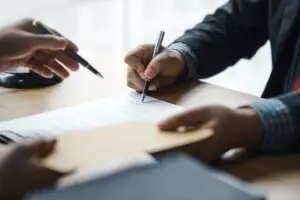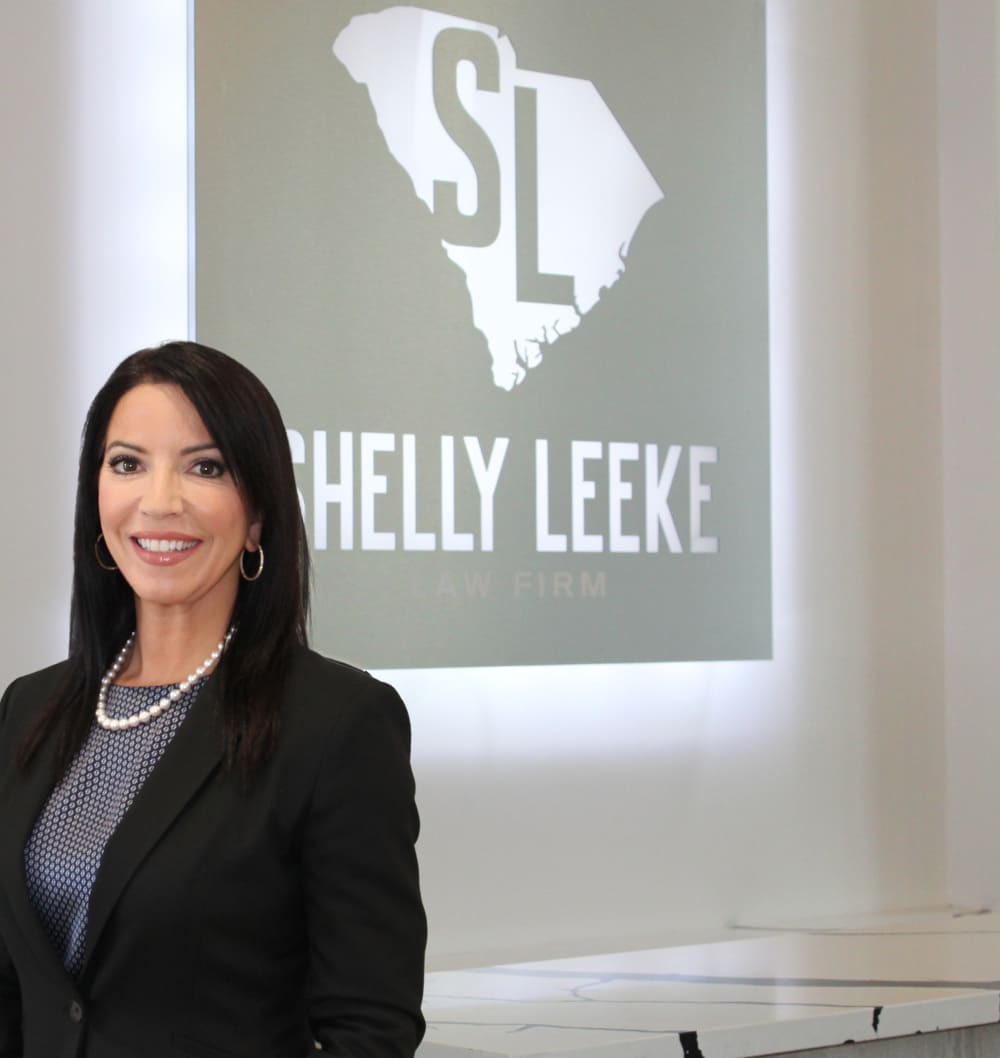
Mediation is a form of alternative dispute resolution required by some counties in South Carolina before a case proceeds in court. Mediation allows the two parties in a lawsuit to reach an agreement where both parties are mutually accepting of the outcome. Mediation is guided by a mediator who facilitates conversations between the parties to reach an agreement without undergoing extensive legal battles.
Working with a supportive South Carolina personal injury lawyer at Shelly Leeke Law Firm will provide the navigational tools and assistance a client needs to aim toward a resolution through the mediation process. Our goal is to facilitate the most beneficial outcome for our clients throughout the legal process and strive toward an agreement through successful mediation.
How Mediation Works
Your personal injury lawyer in South Carolina will have met the required qualifications before mediation occurs. Mediation often begins with all the parties involved in a lawsuit meeting so the attorney for each client has time to share the strengths of their case. Before mediation ever begins, your personal injury attorney in South Carolina will have reviewed and prepared for your case, determining the damages you have suffered and concluding a fair settlement amount for:
- Lost wages
- Medical costs
- Pain and suffering
- Other damages resulting from your injuries
Both attorneys will make opening statements, and a time for countering statements from the opposing side will be given. The parties will then meet separately with the mediator as the mediator works between both groups separately to present offers or counteroffers, offering advice on how the law works specific to the case. Mediators do not make the final decisions in mediation like other professionals overseeing alternative dispute resolutions, such as arbitrators.

The Benefits of Mediation in a South Carolina Personal Injury Case
Before going into mediation, a South Carolina personal injury lawyer with Shelly Leeke Law Firm will have determined an acceptable amount for your damages, determining the maximum compensation available and discussing the least compensation amount sufficient to meet your needs. Mediation gives more control over the outcome to the parties involved, whereas a case that goes to court is entirely in the hands of the jury and judge unless a settlement can be reached before closing. Other benefits of meditation include:
- Time savings: Litigating a personal injury case in court can take months or years, depending on the court’s schedule and the case’s complexity.
- Cost-effectiveness: The costs of working with a mediator can be shared between parties. Attorney’s fees are based on the time spent on a case, with mediation shortening the time it takes to complete a personal injury case in South Carolina.
- Confidentiality: The mediation process provides a confidential avenue to finding a solution compared to a court case whose outcome is public.
- Amiability: Mediation fosters conversation and agreement, while court cases are more aggressive. It may be that you have negative feelings for the person responsible for your injuries, but a resolution may still be achieved in a less contentious manner out of court.
Coming to an agreement through mediation for the damages you have suffered from a personal injury allows for flexible solutions that fit your needs. A court case is handled by the laws governing them. Mediation may meet the unique needs that apply to your damages.
The Mediator’s Role
The mediator is likely agreed upon by attorneys for both parties in a personal injury case. The mediator will also likely have experience in the type of case that the two parties wish to settle. The role of a mediator is to:
- Remain impartial to both parties while offering guidance
- Understand how South Carolina law applies to the case
- Move parties from two ends of a spectrum more toward a middle ground of agreement for damages
- Assist in creating an enforceable settlement agreement
Settlement agreements reached in mediation are enforceable contracts. Both parties in the contract must willingly agree to an offer and acceptance of the terms. The act of mediation is not enforceable, but an agreement coming from mediation is, and a case may be taken to court when a breach of the agreement occurs.

How to Proceed When Mediation Does Not Work
The mediation process and working with a South Carolina personal injury attorney can provide avenues for a successful outcome in a personal injury case in South Carolina. However, as mentioned, the parties in a dispute do not have to come to an agreement, and the mediation process is not binding and does not require a resolution. From this point, several options may be pursued.
- The mediation process can be revisited to produce a better outcome when progress is made in a case, even though a resolution has not been reached but seems attainable.
- The parties may still decide to settle before going to court, even after mediation fails. Settlement negotiations may be used to reach an agreement until the court begins deliberation.
- Going to court may ultimately be the best option when an agreement cannot be reached, allowing for a judge or jury to render a final verdict, whether the parties in a dispute agree with the outcome. All information about the case will become public knowledge.
A South Carolina personal injury lawyer looking out for your best interests will explain the possible outcomes of each situation and how to protect the value of your South Carolina personal injury claim. Striving toward a mediation agreement is the goal, but being prepared for another course of action allows you to achieve the best outcome for your case. Let our team help you navigate the options available and remove doubts about the mediation process.

Discuss How Mediation Can Work for You with a South Carolina Personal Injury Attorney
You are guaranteed compassionate, dedicated support when you contact Shelly Leeke Law Firm. Our goal is to provide unwavering representation, helping you save time and money while achieving the financial outcome you deserve. Schedule a free consultation to begin the legal process and explore how mediation can work for you.







